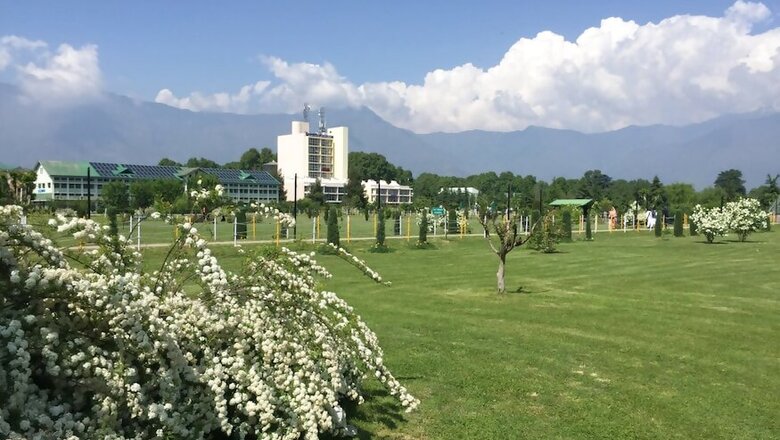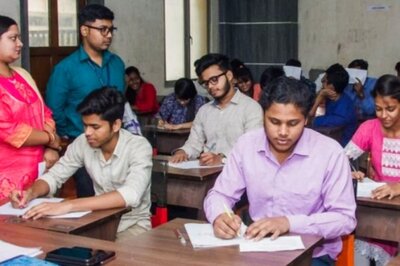
views
Srinagar: After remaining closed for almost four months, Kashmir University (KU) is allowing residential students to join back only if they furnish a ‘bond’ which includes restrictions on using internet to share information and an assurance to not “indulge in activities inimical to the interests” of the university.
The bond, a non-judicial affidavit, sets a pre-condition for the students before they get to use the hostel facilities of the university. It also asks students to cooperate with the university administration in case of “inclement weather and present circumstances” without any specification on the latter.
The students believe the order has been issued keeping in view the situation which arose after the abrogation of special status of Jammu and Kashmir and division of the state into two union territories.
Thousands of people, including protesters, lawyers, political leaders and activists, were rounded-up in the aftermath of the abrogation of provisions of Article 370 of the Constitution that granted special status to J&K.
Restrictions, including suspension of internet and pre-paid mobile services, were imposed along with Section 144 of the Criminal Procedure Code (CrPC) that bars gathering of more than four persons.
Four months on, the curbs remain, along with a ban on all kinds of protests, especially political ones.
“It (bond) has a vague language which the university administration can interpret according to its own convenience,” said a research scholar who has already furnished the bond in order avail the hostel facility.
He said the bond seems to be an effort to prevent any type of political debate around abrogation of Article 370, which the authorities think can trigger protests and dissent in open spaces. If not political protests, students claim this bond strips them off their basic right to protest even against lack of facilities in the hostel.
“If there is no electricity or heating system in the hostel, we cannot protest as we have already submitted a bond. This renders a student helpless,” said a student who has already submitted the bond.
KU and all other educational institutions were shut after the Centre brought about the legislations in Parliament on August 5. The students started attending their classes from the beginning of December and there has been no campus agitation ever since.
Speaking to News18, Media Coordinator Kashmir University, Shahid Rasool said, “I have no idea about this bond”. The university registrar also claimed that he had no idea about such a “bond” which sets pre-conditions before the students ahead of using the hostels.
Over a dozen students shared a copy of bond, which they have submitted to the university, with News18. Many of them said this is for the first time that students of the key institute of higher education in Jammu and Kashmir have been asked to sign such a document.
The students term it ironical that they have been asked not to use internet when it is not even working in the Valley since August 5.
“We are researchers and internet is crucial for us. Instead of facilitating us internet connections, we are being made to sign such vague dictates,” one of them said.
Established in 1948, political activities were never allowed in Kashmir University, the main campus of which is located on the banks of the Dal Lake, near the Hazratbal shrine in Srinagar.
“A university is a place where students are supposed to debate openly about the issues and protest about unjust happenings. But we have been already deprived of that basic right,” said another scholar, adding, “The new bond has only left them helpless and vulnerable.”
“A student can now be thrown out of the hostel even if he raises question on the food quality,” the scholar said. “It is not a bond but a slavery note that we are forced to submit,” said another student.
In a similar move earlier, politicians and activists, who were detained in the erstwhile state were asked to sign a bond that forced them to give up the right to hold public speeches concerning “recent events” following the abrogation of Article 370 and subsequent lockdown.
Some of the political leaders secured their freedom after they signed such bonds, which restricted them from making public statements, comments, giving public speeches or participating in any public event "related to the recent events (abrogation of special article) in Jammu and Kashmir" for one year.


















Comments
0 comment